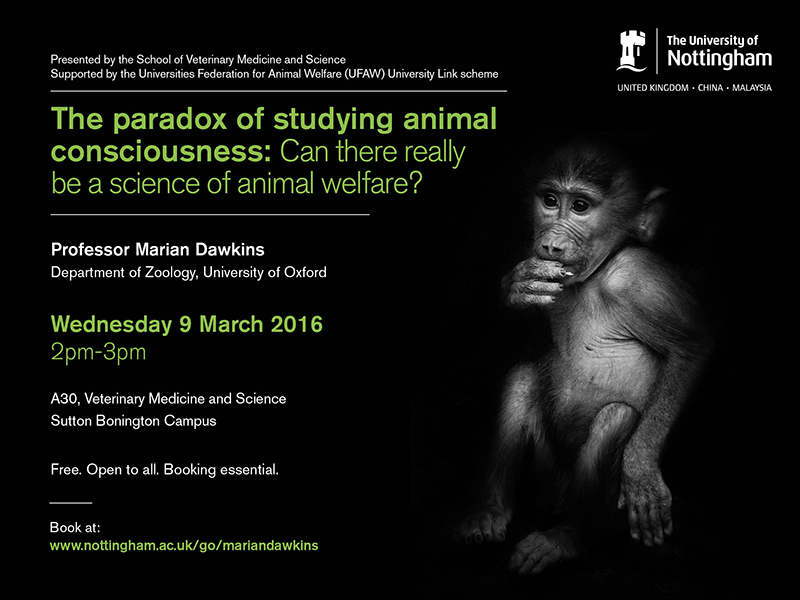
There is a seeming paradox at the heart of a science of animal welfare. To be comprehensive enough to include what most people mean by animal welfare, it must involve understanding what animals consciously feel and experience. But to be a science, it has to embrace the one thing that biology finds the most intractable problem of all, namely animal consciousness. Professor Marian Dawkins, Department of Zoology, University of Oxford, will explore this apparent paradox and whether there is, or could be, a way out of it.
Presented by the School of Veterinary Medicine and Science, and supported by the Universities Federation for Animal Welfare (UFAW) University Link scheme.
About the speaker: Dr Marian Stamp Dawkins CBE FRS is Professor of Animal Behaviour in the Department of Zoology, University of Oxford. Professor Dawkins is a world renowned animal behaviour and welfare scientist, who has been instrumental in establishing animal welfare as a field of scientific research. Marian pioneered the use of rigorous scientific methods for testing and quantifying preferences in animals, allowing us for the first time to see what really matters to the animals themselves. Her work has provided evidence that improvements in animal welfare can benefit both farm animals and humans, changing peoples’ perception of animal welfare and cementing its place in the biological sciences.
She is the author of a number of well-known, seminal books on animal behaviour and welfare, including among others, Animal Suffering: the Science of Animal Welfare (1980), Through Our Eyes Only? The Search for Animal Consciousness (1993), The Future of Animal Farming (2008), and Why Animals Matter: Animal Consciousness, Animal Welfare, and Human Well-being (2012).
Free, all welcome. Please book online.